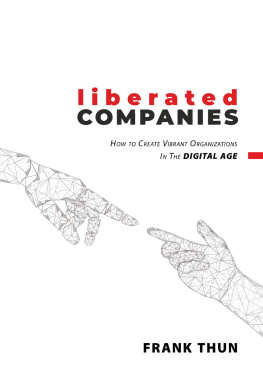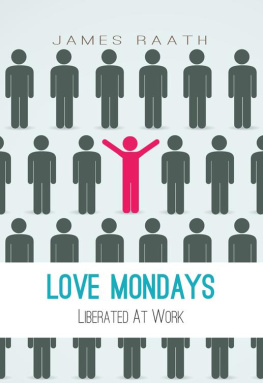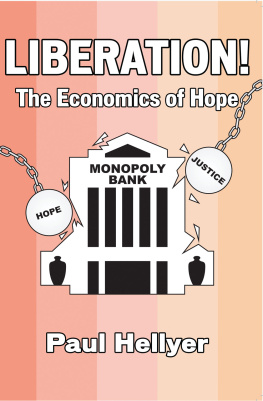Frank Thun - Liberated Companies
Here you can read online Frank Thun - Liberated Companies full text of the book (entire story) in english for free. Download pdf and epub, get meaning, cover and reviews about this ebook. year: 2019, publisher: Books on Demand, genre: Business. Description of the work, (preface) as well as reviews are available. Best literature library LitArk.com created for fans of good reading and offers a wide selection of genres:
Romance novel
Science fiction
Adventure
Detective
Science
History
Home and family
Prose
Art
Politics
Computer
Non-fiction
Religion
Business
Children
Humor
Choose a favorite category and find really read worthwhile books. Enjoy immersion in the world of imagination, feel the emotions of the characters or learn something new for yourself, make an fascinating discovery.
- Book:Liberated Companies
- Author:
- Publisher:Books on Demand
- Genre:
- Year:2019
- Rating:3 / 5
- Favourites:Add to favourites
- Your mark:
- 60
- 1
- 2
- 3
- 4
- 5
Liberated Companies: summary, description and annotation
We offer to read an annotation, description, summary or preface (depends on what the author of the book "Liberated Companies" wrote himself). If you haven't found the necessary information about the book — write in the comments, we will try to find it.
Liberated Companies — read online for free the complete book (whole text) full work
Below is the text of the book, divided by pages. System saving the place of the last page read, allows you to conveniently read the book "Liberated Companies" online for free, without having to search again every time where you left off. Put a bookmark, and you can go to the page where you finished reading at any time.
Font size:
Interval:
Bookmark:
Lets make the workplace better than ever before.
Bibliographical Information of the German National Library (Deutsche Nationalbibliothek): The German National Library records this publication in the German National Library (Deutsche Nationalbibliografie). Detailed bibliographical data can be found under www.dnb.de
Management Digital GmbH, 2019
Production and Publisher:
BoD Books on Demand GmbH, Norderstedt, Germany
ISBN 9783750447295
This book is dedicated to all those who want to make a difference.
 Table of Contents
Table of Contents Foreword
ForewordAround the age of fourteen, I started to think that I was born too early. The new digital technologyin the form of a Commodore 64 personal computer captivated me, as it did so many others. I imagined all the wonderful changes that would be created in the emerging digital age, but when I compared these visions to the technological reality of the 1980s, I recognized that I was born 100 years too early.
However, I have changed my mind in recent years. Now I am happy to be alive at this potent time in our history as the world gears up to fight the ultimate battle between human technological mastery and biological survival: the extinction crisis.
Its not that I used to be a fundamentalist about anything. On the contrary, I made my career serving more or less conventional companies in their quest to utilize digital technology. Like everyone else I met during that time, I had a utilitarian outlook on technology: Technology is merely a tool to be used. How wrong we were. My job as a technophile economist has always been bridging organizational, technological, and human needs. The more I learned about my trade, the more I realized that bridging those three elements is all about connectionconnection between people and technology, connections between technology and organizations, and connections between organizations and people. It was the quality of these connections, their depth and their strength, that determined the outcome of the projects I have been responsible for as a manager.
The more I advanced in my career, the more it dawned on me that the current organizational hierarchy is just not built to allow strong connections between any of these three elements: people, technology, and organizations. With so much arbitrary power in the hands of superiors over subordinates, negative political behavior and exploitation are bound to run rampant. Like so many others in the digital technology field, my eyes have been opened by the contemporary movements that highlight the need for more connected ways of workingAgile, Lean Startup, New Work, DevOps. During the three years that I have spent researching and writing this book, it dawned on me that stronger connections between people and organizations not only change the internal dynamics and performance of organizations for the better; they make organizations and people more connected to the outer world. They make organizations more caring about society and the environment than the naturally exploitative organizational hierarchy we have become accustomed to.
Alas, this book is not primarily about self-managed, fully democratic workplaces. It is rather about finding intelligent, resilient organizational designs that go beyond a simple dichotomy of hierarchical and self-managed organizations. This book is about building great workplaces that let organizations, technology, people, and the environment flourish together.
 Introduction: Todays Inept Businesses
Introduction: Todays Inept BusinessesWe need to reinvent the technology of human accomplishment.
Gary Hamel
Human society has come a long way at what seems like breathtaking speed. It has taken humanity just a couple of generations to progress from largely agrarian communities to the industrial age to the dawning of the digital age. It is a great time to be alive, with nearly all indicators of human well-being improving in recent decades. Yet there are challenges, even existential threats, inherent to this new way of life. Never have so many people enjoyed such material wealth as today, but never before has material wealth been so decoupled from physical means.
Lets start with the most obvious example: digitalization. From a company perspective, the complexities of the ever-more-rapidly changing digital landscape are creating huge social upheavals. Some have gone so far as to say that software is eating the world. In a world where smartphones have become an extension of peoplelenses through which people perceive the world digital platforms rule. It is the immaterial, the elusive software, the algorithms that structure the way we interact with our surroundings and make decisions that increasingly matter. We continue to run companies and organizations, however, on a foundation that was built for the industrial age with its coal mines, steel mills, and manufacturing plants. The results are costing us dearly. Whole sectors and industries are being uprooted by digital disruptors, while most businesses remain stagnant and incapable of change.
In the digital age, companies need three things. First, they need to learn to produce or at least utilize software better. It is not that every company will become a software company, but every company that finds innovative ways to utilize software will surely be better off than those that do not. Second, companies need to continuously reconfigure themselves to the rapidly changing technological environment. Third, such a degree of organizational learning and readiness to change can only be achieved if people at all levels in companies are willing (and able) to learn and change. As we will examine in the chapters to come, the way most companies are organized today suppresses learning and prevents change.
The second challenge is even more urgent: it is the extinction crisis currently facing life on this planet. Our victory over nature, wherein we have harnessed the natural environment to suit humanitys needs, may turn out to be our downfall. The climate catastrophe, the mass extinction of other forms of life on earth, and the poisoning of our soils and oceans with microplastics are all signs that our ecosystem is hurtling towards the edge of a cliff. Much of our inability to find common ground on those measures needed to keep our planet hospitable, however, is rooted in the discontent created by income and wealth inequality. So long as people have to struggle for their material existence, everything other than short-term concerns over how to provide for themselves and their families seems irrelevant.
Companies need to measure up to the extinction crisiswhether they like it or not. First, they must put an end to the exploitation of the natural environment. As natural disasters take their toll, customers are likely to favor companies that have more sustainable and regenerative practices, and governments must regulate these businesses accordingly. Anticipating this trend is bound to be both wise and profitable. Second, and more difficult to understand, is that companies need to become more distributive by design. The current deal between the employer and the employed is money for submission, with the lions share of profits going to the employer. We find this naturalits just the way things are. Yet, if we continue to ask people for submission in a system of exploitation, we do not create the systems of learning that we actually need. Even more fatally, by doing so we have built exploitation as a central value into the inner workings of companies.
and every organizational system comes with its own values attached. By continuing to choose the organizational hierarchy, we are choosing submission and exploitation by design. People spend 50% of their waking hours working for companies, and spending this time in a system built upon submission and exploitation is bound to be detrimental not only to their outlook on the world, but to the very fabric of society itself. Yet, there are alternatives. There are novel organizational systems that get people to take a more wholesome, interconnected, and purposeful outlook on life. These systems are distributive by design because they do not monopolize economic outcomes as strongly. They are more egalitarian, more liberating.
Next pageFont size:
Interval:
Bookmark:
Similar books «Liberated Companies»
Look at similar books to Liberated Companies. We have selected literature similar in name and meaning in the hope of providing readers with more options to find new, interesting, not yet read works.
Discussion, reviews of the book Liberated Companies and just readers' own opinions. Leave your comments, write what you think about the work, its meaning or the main characters. Specify what exactly you liked and what you didn't like, and why you think so.













